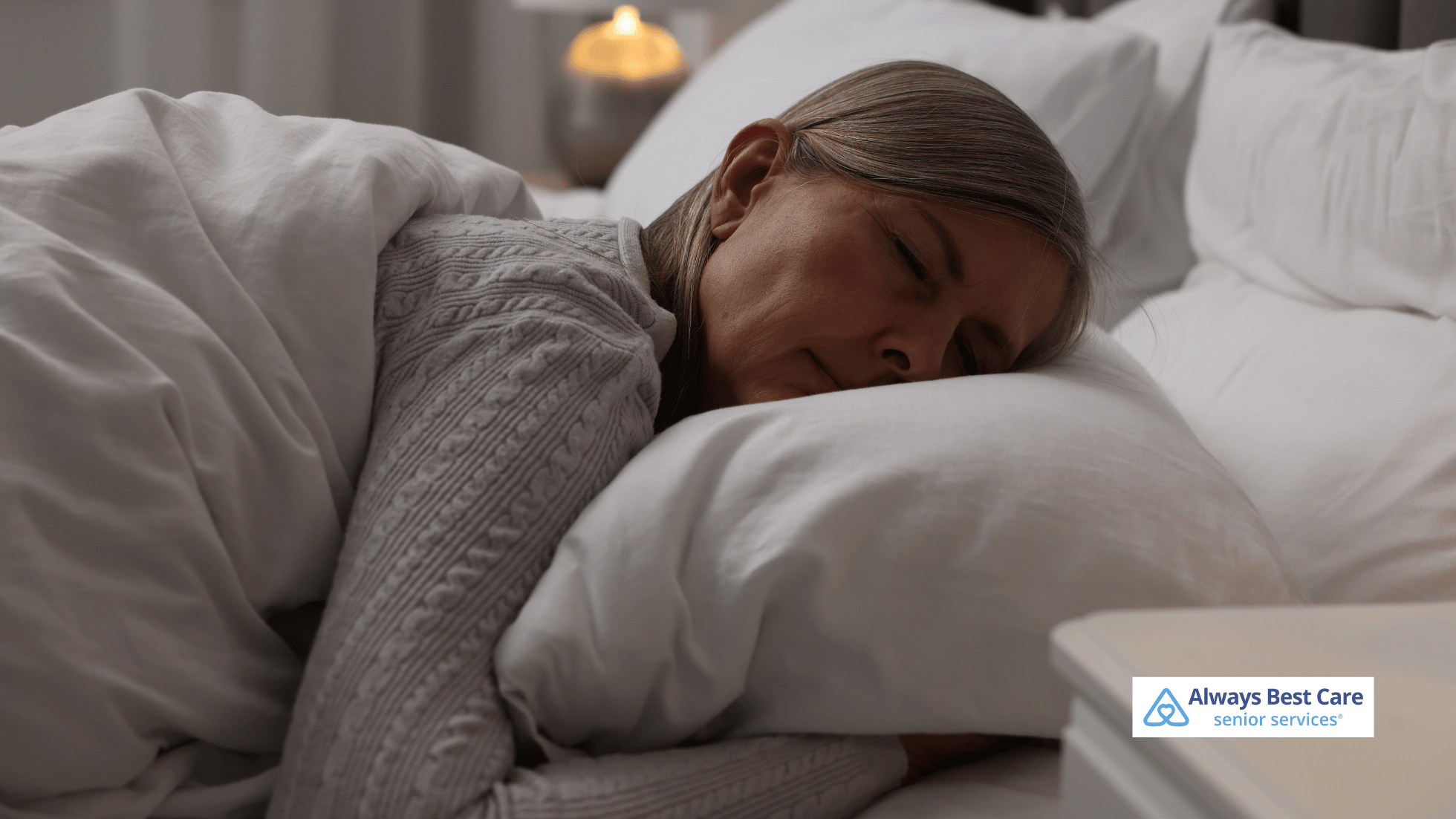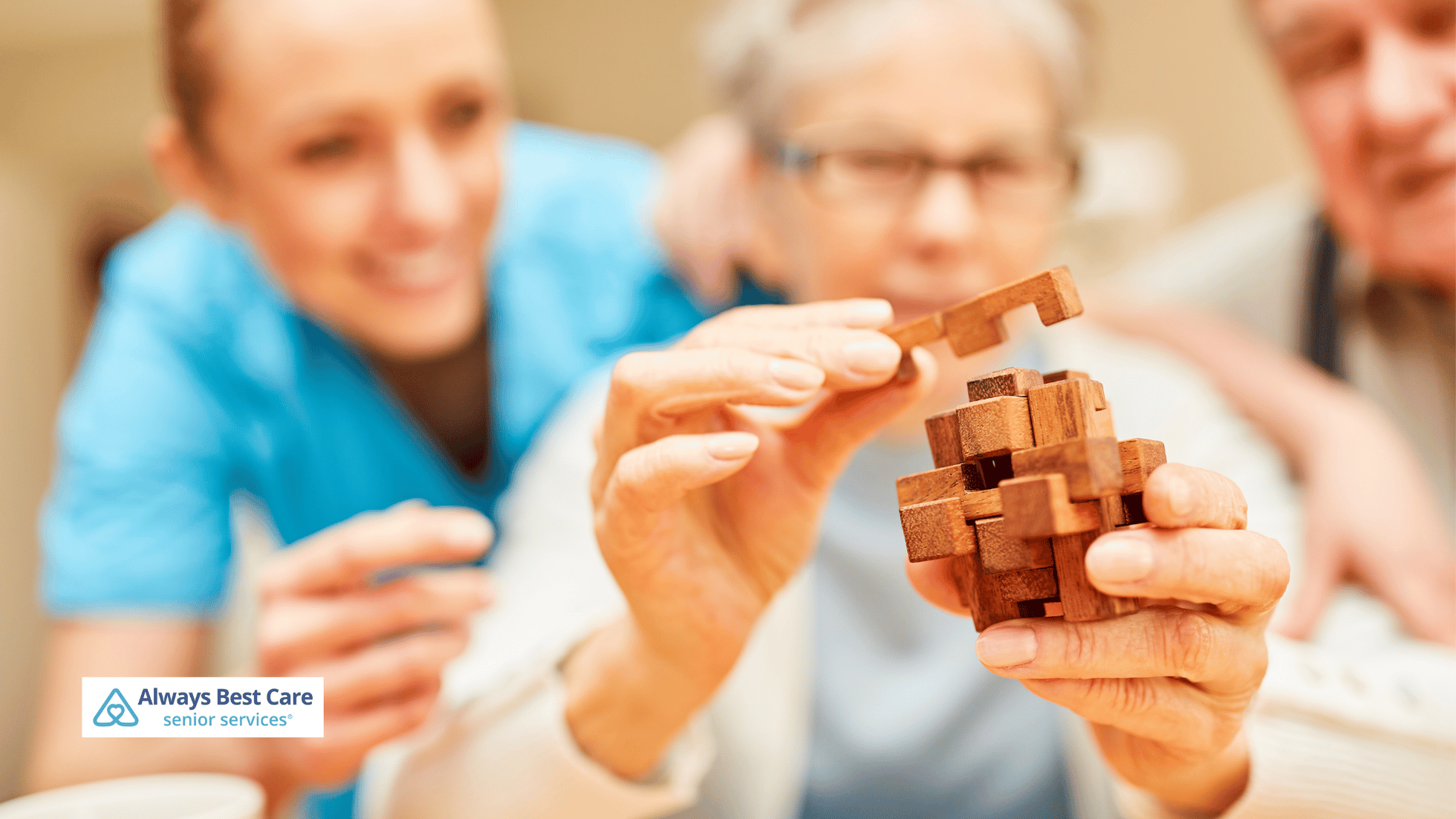8 Proven Tips to Help Seniors Sleep Better

As we age, sleep becomes more vital to our overall health.
Seniors often face frequent waking and difficulty falling or staying asleep. These sleep disturbances can affect energy levels, mood, and cognitive function.
However, making small, manageable changes can significantly improve sleep quality.
Here are eight proven tips to help seniors rest more easily and wake up feeling refreshed!
Table of Contents
Create a Consistent Sleep Schedule
Maintaining a consistent schedule is one of the simplest yet most effective ways to improve sleep. This practice helps seniors fall asleep faster, stay asleep longer, and feel refreshed.
Here are a few key points to consider when creating a consistent sleep schedule:
Set a Fixed Bedtime and Wake-Up Time
Try to go to bed and wake up simultaneously each day, even on weekends. This routine helps train the body to naturally wind down and wake up around the same time, regulating the body’s internal clock.
Avoid Long Naps during the Day
While naps can be tempting, long or late naps can interfere with nighttime sleep. If a nap is needed, limit it to 20-30 minutes earlier to prevent it from disrupting your sleep cycle.
Establish a Bedtime Routine
Calming activities like reading or light stretching before bed can signal the body that it’s time to wind down. A consistent pre-sleep routine makes falling asleep quickly and relaxing the mind easier.
Be Consistent, Even on the Weekends
It is important to stick to the sleep schedule throughout the week, including weekends. Variations in your sleep routine can confuse the body’s internal clock, making it harder to sleep well during the week.
Gradually Adjust Sleep Times if Necessary
If your sleep schedule is inconsistent, don’t make drastic changes immediately. Gradually adjust your bedtime and wake-up time by 15-30 minutes until you reach your desired routine.
Optimize the Bedroom Environment
The bedroom should be a sanctuary for rest. Optimizing the sleep environment plays a significant role in improving sleep quality for seniors.
Keeping the room dark, quiet, and at a comfortable temperature can help create the ideal setting for uninterrupted rest.
Consider using blackout curtains, earplugs, or a white noise machine to block out any distractions that could disturb sleep.
Encourage Relaxation before Bedtime
Relaxation before bedtime is key to preparing the body for sleep.
Calming activities, such as reading, light stretching, or listening to soothing music, help signal to the brain that it’s time to wind down.
Avoid stimulating activities, such as watching TV or using devices right before bed, as these can hinder the body’s natural sleep cues.
Adjust Your Diet for Better Sleep
What we eat and drink throughout the day, particularly in the evening, can profoundly impact sleep quality. For seniors, mindful choices around food and beverages can help prevent sleep disruptions and promote a more restful night.
Here are some important dietary tips for better sleep:
- Avoid Caffeine and Other Stimulants in the Late Afternoon and Evening: Caffeine is known to stay in the system for several hours, so it is best to avoid coffee, tea, chocolate, and certain sodas in the afternoon and evening.
- Limit Heavy or Large Meals before Bed: Eating large, heavy meals late in the evening can make it uncomfortable to fall asleep. It can also cause indigestion or heartburn, which may wake you up during the night. Aim to have dinner at least 2-3 hours before bedtime to give the body enough time to digest.
- Opt for Sleep-Promoting Snacks: If you need a snack before bed, choose something light and easy to digest. Foods like bananas, oatmeal, or a small bowl of yogurt can help promote better rest by providing the body with sleep-supporting nutrients like magnesium and tryptophan.
- Stay Hydrated, but Avoid Drinking Too Much Liquid at Night: Staying hydrated throughout the day is important, but too much liquid in the evening can lead to frequent bathroom trips during the night.
- Limit Alcohol Intake: While alcohol may initially make you feel drowsy, it can interfere with deep, restorative sleep later in the night.
Use the Restroom and Ensure Bathroom Safety
Frequent nighttime trips to the bathroom can disrupt sleep.
To minimize waking up in the middle of the night, it is a good idea to limit liquids a few hours before bed. Additionally, ensure that the bathroom is safe and easily accessible. Installing nightlights, grab bars, or non-slip mats can provide extra security for seniors, reducing the risk of falls or accidents during late-night visits.
Stay Physically Active during the Day
Regular physical activity has been proven to enhance sleep quality.
Seniors don’t need to exercise strenuously; a daily walk, light yoga, or stretching can be incredibly beneficial. Staying active during the day helps regulate energy levels and ensures the body is ready for rest at night. However, it’s best to avoid exercise too close to bedtime, as this can leave the body feeling energized rather than relaxed.
Lower Stress and Keep Anxiety under Control
Stress and anxiety are major culprits in sleepless nights. Managing stress with relaxation techniques such as meditation, breathing exercises, or even journaling can significantly affect how well seniors sleep. Establishing a calming pre-bed routine that includes these practices can help keep anxiety at bay and promote peace before bedtime.
Limit Screen Time before Bed
Screens emit blue light, which can interfere with the body’s ability to produce melatonin, a hormone that regulates sleep. For seniors, it is important to limit the use of phones, tablets, or TVs at least an hour before bed. Instead, opt for non-screen activities like reading or listening to music to help wind down.
A Restful Night’s Sleep is within Reach
Better sleep can improve health, provide more energy, and give a brighter outlook. By making minor adjustments to daily routines—whether through managing diet, creating a comfortable bedroom environment, or reducing stress—seniors can enjoy a restful night’s sleep and wake up ready to take on the day.
How Always Best Care of Oakville Can Help
At Always Best Care of Oakville, we understand seniors’ unique challenges when it comes to achieving quality sleep. Our compassionate caregivers are here to assist with creating daily routines that promote better rest, from encouraging consistent sleep schedules to helping with evening routines that include relaxation and winding down.
For seniors with mobility challenges, our team can help ensure bathroom safety at night, reduce the risk of falls, and create a safe, comfortable environment. Additionally, our caregivers can help manage dietary needs by preparing light, nutritious meals and snacks that support healthy sleep patterns.
Whether supporting daily exercise, reducing stress, or offering companionship during bedtime routines, Always Best Care of Oakville is committed to helping seniors achieve the rest they need for a healthier, happier life!
Get Personalized Support for Better Sleep with Always Best Care of Oakville!
If you or a loved one are struggling with sleep-related challenges, Always Best Care of Oakville is here to help. Our dedicated caregivers provide personalized care plans that address physical and emotional well-being, ensuring that seniors enjoy restful nights and improved overall health.Contact Always Best Care of Oakville at (905) 592-4886 to learn more and schedule your free consultation.





